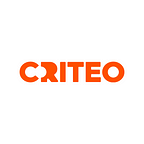Highlights from ECML PKDD 2023
Article by: Daphnée Bestel, Skander Karkar, Alain Rakotomamonjy and Patrick Gallinari.
We are thrilled to share some exciting news about our recent sponsorship at ECML 2023, held in the beautiful city of Torino from September 18th to September 22nd. ECML, the European Conference on Machine Learning, is a prestigious event that brings together over 600 participants from the global tech and machine learning community.
This year, we had the privilege of being a Gold Sponsor at ECML 2023, a status that not only showcases our commitment to cutting-edge technology but also our dedication to fostering innovation in the field.
Our involvement went beyond sponsorship, as we were honored with a coveted speaking slot, allowing us to share our insights and expertise with the conference attendees. Additionally, we hosted a workshop that provided a platform for in-depth discussions and hands-on exploration of the latest advancements in the world of machine learning.
Our participation
Besides the booth, our amazing research team had the opportunity to participate in the event presenting a paper and running a tutorial:
- Paper accepted: “Adversarial Sample Detection Through Neural Network Transport Dynamics” by Skander Karkar, Patrick Gallinari, Alain Rakotomamonjy 👏
- Tutorial: “Physics-Aware Deep Learning” by Patrick Gallinari and Yuan Yin (Sorbonne University) 👏
Criteos’ Takeaways
Stay tuned as we delve deeper into our experience at ECML 2023, highlighting the key takeaways, innovations, and knowledge-sharing moments that made this event a remarkable milestone in our journey towards shaping the future of technology.
Skander’s insights
This was my first in-person machine learning conference during my PhD. It was a nice and interesting experience to present our paper and to talk with people at the Criteo stand.
I also discovered interesting papers at the poster sessions, the deep learning theory session, the health and bio session, the adversarial machine learning session, and the Neuro-Explicit AI and Expert-informed Machine Learning for Engineering and Physical Sciences tutorial and workshop.
I particularly enjoyed a presentation on Bayesian optimization using Gaussian processes. Bayesian optimization is useful when the cost of evaluating the black-box target function we want to optimize is high. The presentation also proposed a grey-box setting to integrate some partial knowledge we have about the target function.
There were also two interesting papers about the robustness/explainability of large language models. Both papers proposed to find the minimal modifications to a sentence that would change the language model’s output.
Alain’s notes
After a hectic travel planning due to the closure of the Frejus tunnel (one month before the conference and for one year) and Turin’s airport two days before the conference, I finally arrived in Turin. I was very happy to meet the other participants of the conference, some colleagues I met as a former academic, to see our nice booth set up by Daphnée and to discover the city of Turin.
From a scientific point of view, the conference featured three amazing keynote talks. The first one by Max Welling was very insightful with a very clear take-home message that can be employed anytime one is designing a new model for representation learning: “think about the inductive bias you want and implement them in the latent space of the data”.
The second keynote by Michael Bronstein was very interesting as well. He presented a new framework for graph neural networks that extends his current works, based on new tools inspired by physics and geometry.
The last keynote by Kate Crawford is a must-see (she wrote a book if you can not see her — disclaimer: I didn’t read the book — ). She described the results of her research on the impact of AI on the environment and all the impacts of AI on individuals and society (e.g. fairness, ethics, etc.) and the need to take them into account in the design of new models and algorithms. Given her talk, I am happy that at Criteo some researchers and engineers are working on the topics of AI fairness and our AI models’ ethics.
Patrick’s experience
I initially proposed a tutorial at ECML 2023. The conference organizers opted for a large acceptance rate among tutorial and workshop proposals, asking selected events with related topics to merge. This is quite unusual. I ended up participating in a workshop entitled “Neuro-Explicit AI and Expert-informed Machine Learning for Engineering and Physical Sciences”.
The general topic of the workshop was the integration of explicit knowledge (i.e., the knowledge of domain experts that can be systematically formalized and represented) in machine learning systems. Since AI is changing the practice in science and engineering the challenge is to build upon the synergies between AI and the existing background knowledge in different domains.
I started the day with my 2-hour tutorial on “Physics-Aware Deep Learning” — this is part of my academic activity — slides available at
Tutorial. The workshop then proceeded with two invited speakers: Peter Frazier — Incorporating Human Expertise into Bayesian Optimization — great talk extremely clear, and Sašo Džeroski — Integrating Data-and Knowledge-Driven Approaches to Automated Scientific Modelling — a testimony of how statistical Machine Learning superseded symbolic AI (my interpretation).
In conclusion, ECML 2023 proved to be an exhilarating and enlightening experience for our team. The captivating presentations, engaging discussions, and invaluable networking opportunities reaffirmed our commitment to pushing the boundaries of technology and machine learning.
As we wrap up our participation in this year’s event, we eagerly anticipate the next edition in 2024. We look forward to once again immersing ourselves in the vibrant atmosphere of ECML, connecting with fellow innovators, and sharing our passion for technology with the global community. With the knowledge gained and the inspiration drawn from ECML 2023, we are excited to continue driving progress and innovation in the field of machine learning. Stay tuned for more updates on our journey as we eagerly await the opportunity to return to this remarkable conference next year.
